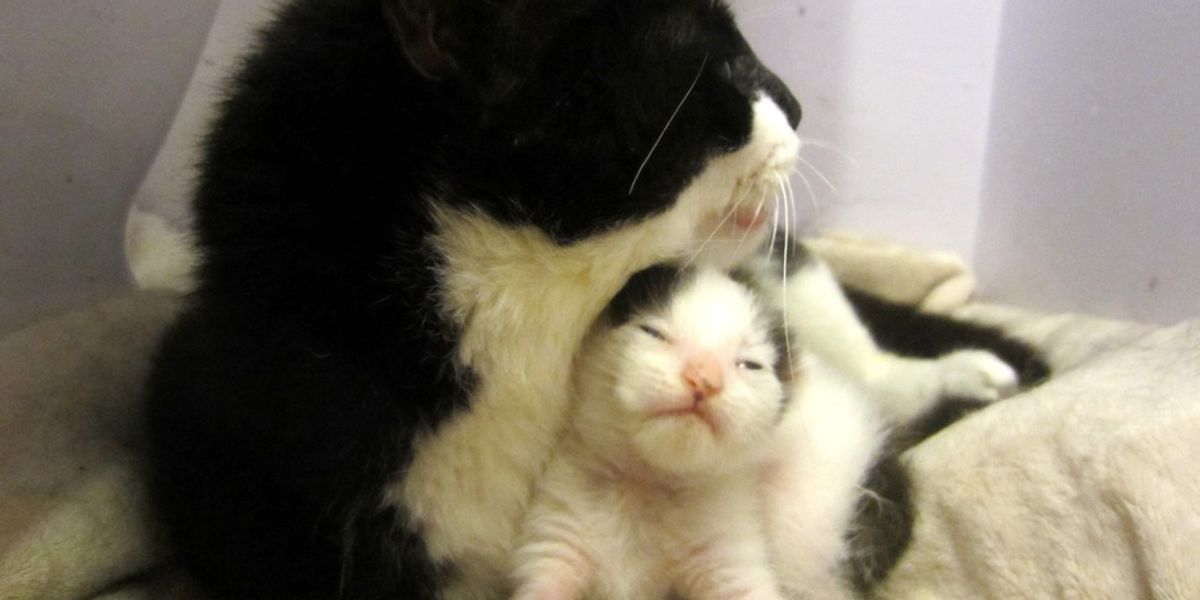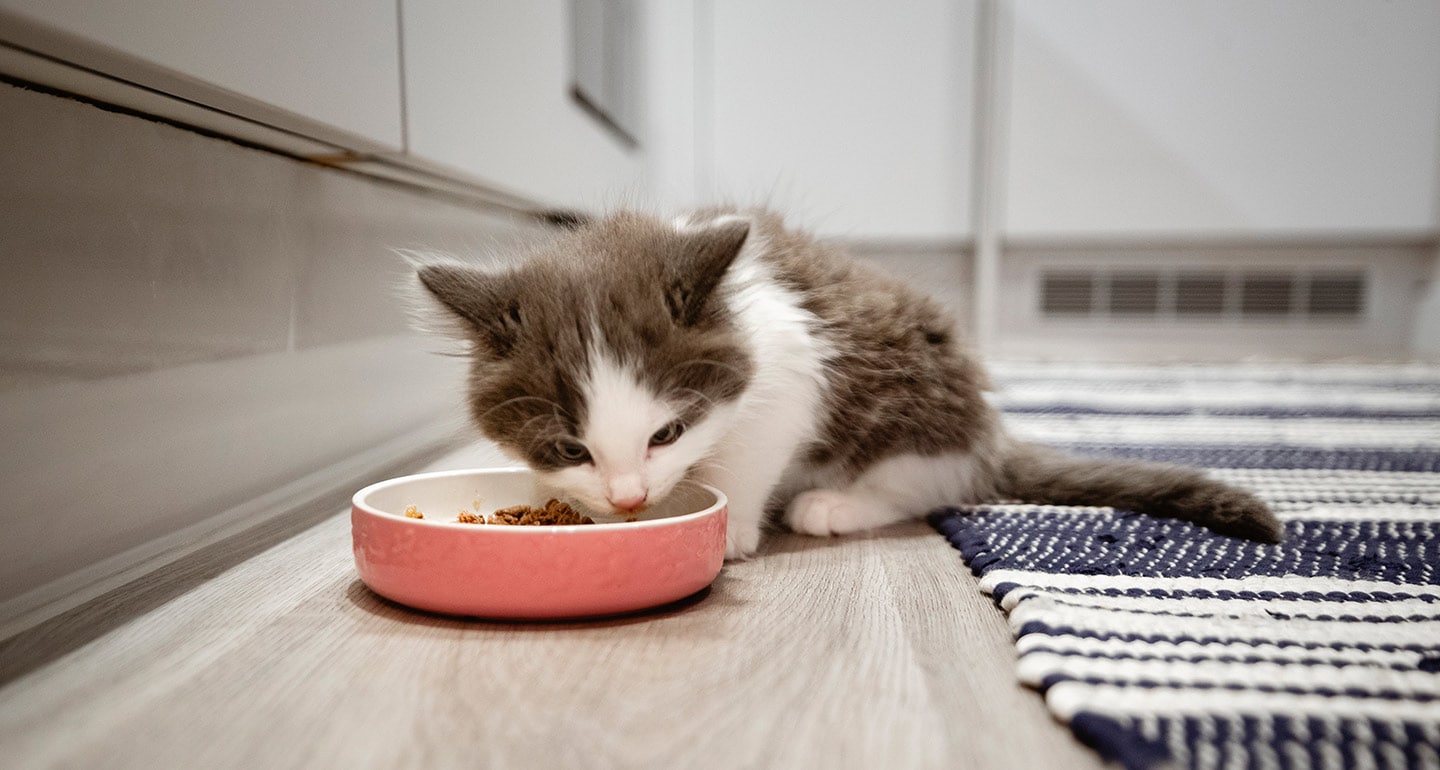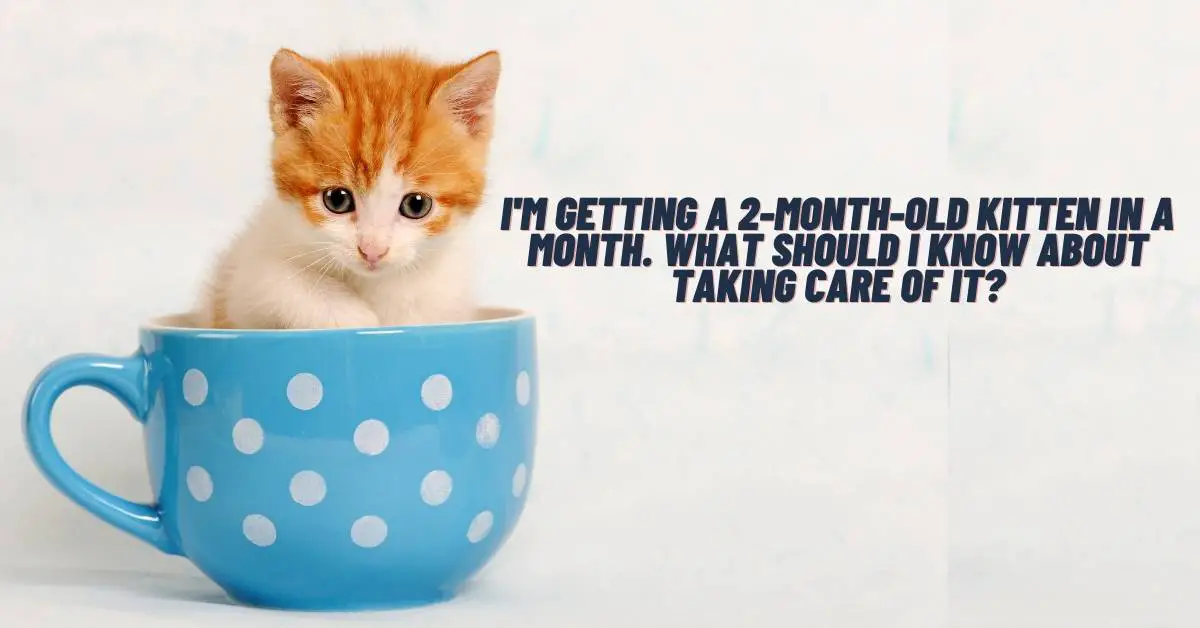Cats make some of the cutest pets, and they’re even more adorable when they’re still kittens. However, taking care of these little furry babies is a lot more tasking than it seems. Kittens are very fragile in the first few weeks, and most times they get weaned from their mothers around 7 or 8 weeks, even though it’s best for kittens to stay up to 10 or 12 weeks with their mums. If you’re getting a newly weaned kitten at 2 months (8 weeks) old there are certain things you must know in order to take proper care of your furry baby cat.

What Should You Know Before Adopting A 2-month-old Kitten?
If you’re going to keep a 2-month-old kitten you should know how to take care of it properly, including the proper feeding, shelter, protection from hazards, and also understand some cat body language and behavioral changes and what they mean.
2-month old kittens require more attention and care than adult cats, and if not trained and cared for properly they may turn out unsociable cats or may develop illnesses. If you can’t tell the meaning of some signs and symptoms your kitten may display when it’s unwell, (which will always show in behavioral changes), your kitten may die in your care.

What does a 2-month-old kitten eat?
Kittens are usually weaned at 6 to 8 weeks old. In order words, the kitten is no longer fed only with milk (mother’s milk or replacement milk).
To take good care of a 2-month-old kitten, you must first know how to feed it well. A good place to start is to ask the previous owner of your pet for details on what kind of food the kitten is used to. You can also ask a vet for what nutrients your kitten needs: this will help you decide on what and what not to feed it.
Kittens of 2 months old should be able to eat solid food on their own, however, they may still require milk. So getting your kitten to eat isn’t the problem, rather it’s what to feed it, and how often it should be fed.

How much food should a 2-month-old kitten eat?
The recommended daily amount for your 2-month-old kitten will actually depend on the kibble you are feeding it. As such, you should read the packaging of the kibble to know the daily nutritional value/ amount and feed your kitten according to its weight and age. Note that kittens of 2 to 4 months have an appetite all the time, so you should share the daily amount into tiny frequent rations. In essence, your cat should be fed at least 4 small rations daily.
Also, never forget to make provision for fresh water always.

What should a 2-month old kitten drink?
Ideally, a 2-month old kitten should be drinking its mother’s milk. However, if you adopted one, the best choice is to give it replacement milk suitable for its age. Bear in mind that replacement milk may not be necessary if the kitten has been completely weaned. However, kittens of 2 months old are usually still akin to like milk: But never give them cow’s milk as it can cause diarrhea. You can ask the people who sold your pet to you about details of your kitten’s weaning process. For completely weaned kittens, water is the best drink; replacement milk can be a once-in-a-while treat.

Tips For Better Kitten Parenting
Get Your Cat To Socialize
Perhaps one of the major advantages of adopting a 2-month-old kitten is that you can get it to bond with you and everyone else with ease. A kitten’s second month is its prime time for socializing. At this age, they are very curious and would want to know all about the world around them, humans and other animals. You shouldn’t waste this opportunity to leave a lasting positive impression on your kitten.
Try to play with your cat a lot, and also introduce your kitten to different people of all ages, and other pets in your home (if any) so that your cat will become comfortable with whoever or whatever is around. It may interest you to know that cats are very eager to play and bond at this age, but as your kitten grows older, it’ll lose interest in you. So make the most of your play times.
Give your cat a good amount of exercise every day
If there’s one thing you should endeavor to do regularly, it’s exercise. This will ensure your kitten doesn’t grow up into a weak, lazy, sickly cat that sleeps all day; plus playtimes can also be very good bonding moments.
.jpg)
2 month-old kittens have no issues whatsoever with exercise. At this age, their motor skills are already developed and they can turn themselves in mid-air to land on their feet in the event of a fall. However, try not to let them play with hazardous substances or in dangerous places.
Remove All Hazards Around Your Home
Kittens play a lot, and they aren’t as meticulous as adult cats. They can play with or ingest certain items in your home that may be very deadly to them. It’s important to note that while these substances pose no threat to you whatsoever, they may injure, sicken, or even kill your baby cat.
Here are some hazardous substances for kittens:
- Human Medications
- Insecticides
- Certain human foods (such as grapes and Chewing gum)
- Rodent poisons
- Household cleaners
- Heavy metals like lead and zinc
- Rubber bands
- Plastic bags
- Garden products such as fertilizers
- House plant
Common Kitten Behaviors/Signs And Their Meanings
| Behavior/Sign/Symptom | Possible Meaning(s) |
| Aggressive behavior (biting, scratching) | fear of danger, Cat is unsocialized, cat is injured |
| Continuous purring | Kitten is satisfied, kitten needs your attention |
| Discharge from eyes/or nose | respiratory infection |
| Kitten shows no interest in playing or in you at all | possible sickness or overfeeding |
| Kitten refuses to eat | possible sickness, kitten hates the kibble or meal been served |
| Kitten has trouble walking | injury, sickness |
Some common signs of a sick kitten include:
- lethargy
- Weakness
- Loss of appetite
- Excessive sleeping
- Vomiting
- Diarrhea
- Weight loss
- Avoiding companions and toys.
Final Advice
One thing you should never fail to do after adopting a kitten is take it to the vet. By doing this you save yourself a lot of trouble. During your first vet visit, your kitten gets dewormed, tested for infection, and you’ll also be given instructions on Can You Feed A Hamster Cat Food?feeding as well as medications for any ailments your cat may have. At most 2 weeks after adopting a cat, take it to a veterinarian.

I’m Christopher Benjamin, a dedicated Animal Nutritionist at Ethos Veterinary Health with a Bachelor of Science in Animal Science from Michigan State University. My lifelong passion for animals led me to establish AnimalsData.Com. Here, I share expert advice, educational resources, and inspiring stories to empower fellow pet lovers worldwide. Join our community as we celebrate the beauty and diversity of our beloved animal companions!

